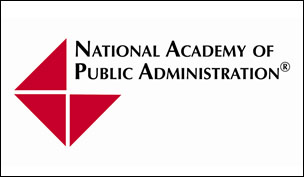A Senate-inspired bill seeks to redo federal procurement
The AGILE Procurement Act in the Senate intends to make it easier for the government to buy commercial goods and services.
Best listening experience is on Chrome, Firefox or Safari. Subscribe to Federal Drive’s daily audio interviews on Apple Podcasts or PodcastOne.
Keep an eye on a Senate bill to remake a federal acquisition. It’s called the AGILE Procurement Act, and it has bipartisan sponsorship. Its stated purpose, among other things, is to make it easier for the government to buy commercial goods and services. Larry Allen says the bill scratches an itch that seems to come up every 25 years or so. The federal sales and marketing consultant joined the Federal Drive with Tom Temin to talk more.
Interview transcript:
Tom Temin: And Larry, I guess it is a little strange to have a bill in the Senate to encourage the government to buy cots, since hasn’t that been policy for about 50 years?
Larry Allen: Tom, it’s been policy since at least 1990 for the government to buy commercial off-the-shelf products. And in fact, we had a bill. We had legislation in the mid 1990s. And the form of the Clinger-Cohen Act, that was the second bill of the 90s that passed to streamline IT acquisitions specifically. It’s great to have a bill. I commend the sponsors for putting this bill in. But the people like me have seen this before. And I think we’ve got a lot of questions about what true impact it would have.
Tom Temin: Right? So it would somehow make it easier for the GSA and other large contract creators to give agencies greater ability to buy commercial. What does it specifically do? What would it change, from what your reading shows?
Larry Allen: Well, I think the real way that this bill could have an impact would be if it allowed the regulatory class to exempt commercial item acquisition from a slew of government specific rules, Tom. That was really the genesis way back when we did the Federal Acquisition Streamlining Act back in the stone age. And then later in Clinger-Cohen the whole idea was, if you want to attract people that don’t traditionally sell to the government market, if you want to streamline the process to get current technology, then you have to make sure that commercial item acquisitions don’t get loaded up with the same rules and regulations we use to buy weapons systems or other government specific solutions. So I think that would be one place where this bill could potentially have an impact.
Tom Temin: And there’s another provision in the bill kind of way from that which would encourage companies to enact employee stock ownership plans to become ESOPs for federal contractors. And that seems, I don’t know, a little bit off the wall.
Larry Allen: Well, Tom, this was another issue that actually came up during Vice President [Al] Gore’s Reinventing Government. At the time, they were promoting ESOPs for specific government organizations. And I think some, maybe it’s a good hard look on that, and maybe even spun themselves into them. This time, the idea is for contractors to form employee stock ownership program companies, to give the employees the extra incentive to be innovative and to also stay with the company over time. I’m not sure that’s a magic bullet, Tom, but you know, if it’s an approach that people want to encourage that people feel will drive innovation, sure, let’s try it. Let’s just not think that that alone is going to solve the acquisition ills.
Tom Temin: Course it might tamp down on whistleblowers, because if you have a stake in the company like that, maybe you wouldn’t blow the whistle so much. So it might work against what the government is trying to do here. This all comes in the context of greater and greater use of non-FAR acquisitions, though, for so-called innovation. And I think that might also be what’s concerning the senators. By the way, it’s Joni Ernst and Gary Peters, who are sponsoring this particular bill.
Larry Allen: Well, and I think your points a good one, Tom, look, the reason we have the AGILE bill, and the reason we have so many non traditional acquisition methods is because the traditional acquisition ways are fraught with hurdles, in terms of regulations, in terms of new processes. Things come in every time somebody in contracting does something not quite the right way, Congress reacts when we get new rules and regulations. Kind of the whole idea about streamlining goes out the door and we get a very heavy dose of accountability. And accountability is a good thing. I don’t want to mean to say we should countenance fraud, waste, and abuse in government acquisition. But we do have to make sure that we have an acquisition system that works. And when you have so many bypasses to the regular acquisition system like we do today. I think it is worth asking whether or not the system is overburdened, whether the system is currently constructed worked. And that’s what leads to bills like the AGILE Procurement Act.
Tom Temin: We are speaking with Larry Allen, president of Allen Federal Business Partners. And to switch to a more topical idea, we are in the fourth quarter of the fiscal year closing in on the next continuing resolution. I won’t even say the next fiscal year. It’s now inevitable in the words of certain members of Congress themselves. And you’re talking about the idea of getting a place on the myriad of IDIQs out there. And it’s one thing to get the place on the IDIQ, or the GWAC, the governmentwide acquisition contract, it’s quite another thing to capitalize on it. What’s your best advice for contractors who finally get that golden ring? They’re on the merry go round of the IDIQ or GWAC, but they have to generate real revenue from it.
Larry Allen: Tom, I think my basic message is there are two different skill sets that companies need to have to be successful on these IDIQ contracts. And just a backup for half a second, the reason I think this is important is because so much business, not just at year-end, but all through the year goes through the standing vehicles, many of them, as you know, have a best-in-class designation right now from OMB, which encourages agencies to use them and makes it even more important for contractors to have them. So much time, Tom is focused on getting the IDIQ contract the bid and proposal portion of this escapade, that I think some companies, particularly smaller new market entrants may miss the point that it’s great to have good bid and proposal team. But if you’re successful, then you better put together a capture team on how you’re going to actually drive business through these contracts. Remember, most of these are fishing licenses. And they’re only as good as a fishing license as you are at catching fish. And what I’m telling clients and others is that they need to make sure they’ve got both types of skill sets, the skill set that enables them to obtain the contract, and the skill set that enables them to successfully pursue business after that.
Tom Temin: Yes, you don’t want to be like the person that stands in line at Studio 54 for two hours, finally gets in and has nobody to dance with.
Larry Allen: A good analogy, yes.
Tom Temin: And just briefly, what should contractors do now for the remainder of this fiscal when I suspect there’s going to be a lot of money shoveled through the system before Oct. 1.
Larry Allen: Tom, that’s right. And we’re gonna have a lot of money, particularly this year since appropriations were so late, effectively cut the fiscal year in half in terms of the business cycle. I think the biggest thing I can recommend to contractors is stay focused. You have a pipeline, make sure that you’re constantly vetting that pipeline. Don’t get too distracted by blue birds. Blue birds are always nice, but if it’s all you are doing is chasing blue birds, then you’re gonna miss the bottom line. So I would recommend stay focused. Keep your eyes where they need to be and make sure that you have dedicated the resources you need to have a successful year-end.
Tom Temin: Larry Allen is president of Allen Federal Business Partners. Thanks so much.
Larry Allen: Tom, thank you and I wish your listeners happy selling.
Copyright © 2025 Federal News Network. All rights reserved. This website is not intended for users located within the European Economic Area.
Tom Temin is host of the Federal Drive and has been providing insight on federal technology and management issues for more than 30 years.
Follow @tteminWFED






